Disco Elysium has ruined The Outer Worlds for me
Pining for an alcoholic detective.
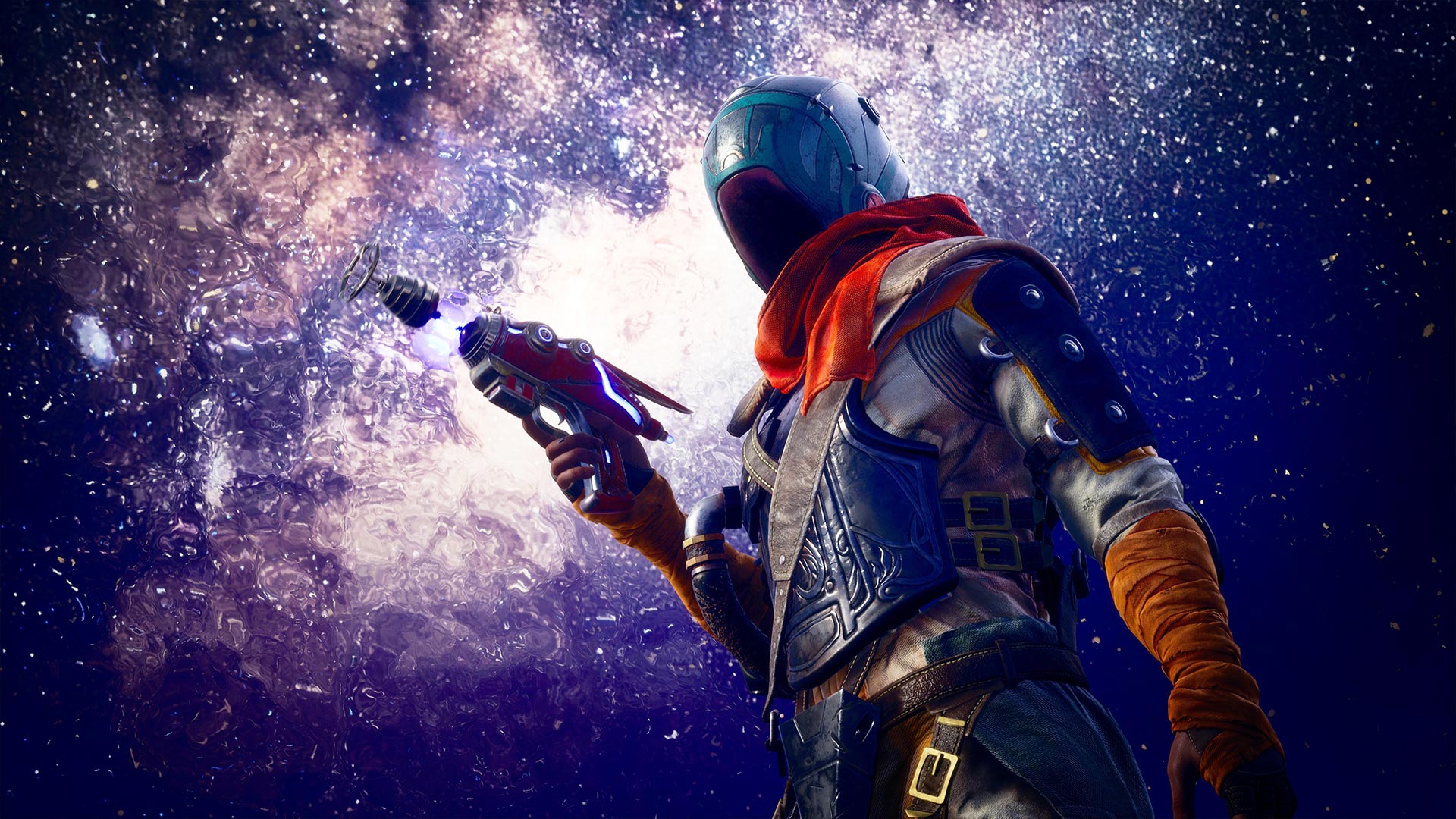
The Outer Worlds is a fun romp around a solar system infested with capitalism and space cowboys. It lets me shoot stuff with my laser pistol and also loudly tell people that corporations are shit. Sometimes I do this while wearing a stetson that makes me good at dodging. This is all good stuff, but my heart isn't in it. It's been stolen by an alcoholic detective. Typical.
An Obsidian RPG that vaguely evokes Fallout in space should absolutely be right up my street, but I keep daydreaming about weirder things. It's just too comfortable. It's polished and confident, ticking all the boxes for a modern RPG, but it's entirely absent of the subversiveness that Obsidian's best games are blessed with, leaving just the familiar, and now streamlined, formula.
I had a negative opinion on a popular game, so I made sure to unleash my sizzling take on Twitter.
I'm enjoying The Outer Worlds, but it's all far too familiar. The choices, quests, combat - nothing has surprised me or jumped out enough to make me think "fuck, I need to tell people about this!" I'm waiting for it to get its claws in me, but I don't think it's gonna happen.October 22, 2019
With six likes, it was clear that many people felt the same way. Six or more. For one of my tweets, the number was dizzying. "Yes, I am right," I thought to myself, once again vindicated. And then I went back to playing Disco Elysium, the real reason The Outer Worlds was leaving me lukewarm.
I started playing Disco Elysium before The Outer Worlds and would highly recommend not doing that. Gimme some of that booze-fuelled amnesia, please. I don't want to arbitrarily pit two games against each other, but their proximity in time and disparity in style make them interesting comparisons. The Outer Worlds is a known quantity. If you've played Fallout and watched Firefly, you're going to feel right at home. Everything from the broad structure of the story to character progression is safe. Disco Elysium, meanwhile, turns empathy and substance abuse into attributes and will gladly murder you with a ceiling fan in the first minute.
The popularity of RPGs, especially on PC, is driven by nostalgia. Pillars of Eternity had to be the new Baldur's Gate. Tides of Numenera was going to be the next Planescape: Torment. Lots of studios were going to make their own isometric Fallouts. Every Elder Scrolls gets compared to Morrowind. We've gotten a lot of great modern games out of the passion for classic RPGs, but it's also made the genre a bit homogenous, with the same archetypes and systems being repeated over and over.
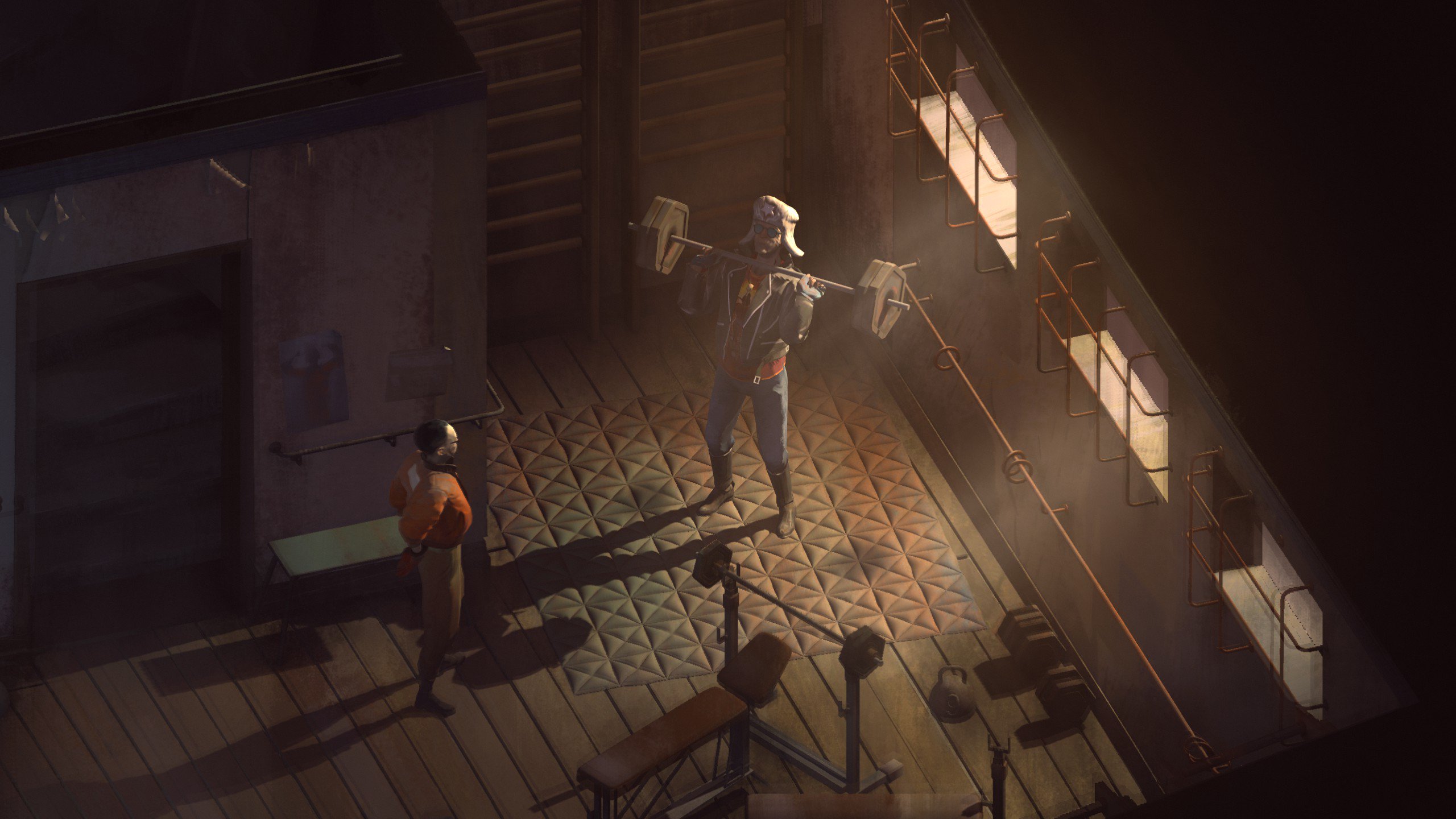
The Outer Worlds, for instance, uses a Fallout-style skills and perks system, but stripped of any personality. Progression is slighter than it is in, say, New Vegas, but both are ultimately concerned with making you better at fighting, talking or tinkering, and The Outer Worlds presents this all in a very simple, matter-of-fact manner and none of it really matters anyway. Pump some points into dialogue skills, grab any old perk and then just get on with the much more engaging gallivanting around a solar system. If you're bored with making the same old characters, Obsidian is right there with you.
The biggest gaming news, reviews and hardware deals
Keep up to date with the most important stories and the best deals, as picked by the PC Gamer team.
I don't want building my character to be an afterthought, though, and the issue is less that Obsidian took a utilitarian approach to skills and perks and more that the foundation itself is just a bit tired. Disco Elysium doesn't throw it out entirely—you're still putting points into skills—but how those skills and decisions manifest in the game is novel, unpredictable and quite often fatal.
Even nurturing Disco Elysium's more physical skills can have bizarre results. Shivers, for instance, is a primal instinct that's like a gumshoe's sense of the city they know so well, but supernaturally amplified. It'll tell you about the weather, but also lots of secrets about the city. Each skill is a character with a voice and personality, offering insight and encouragement rather than just passively waiting to be used. They crop up unexpectedly, sometimes offering case-breaking insights, sometimes telling you to become a paranormal investigator.
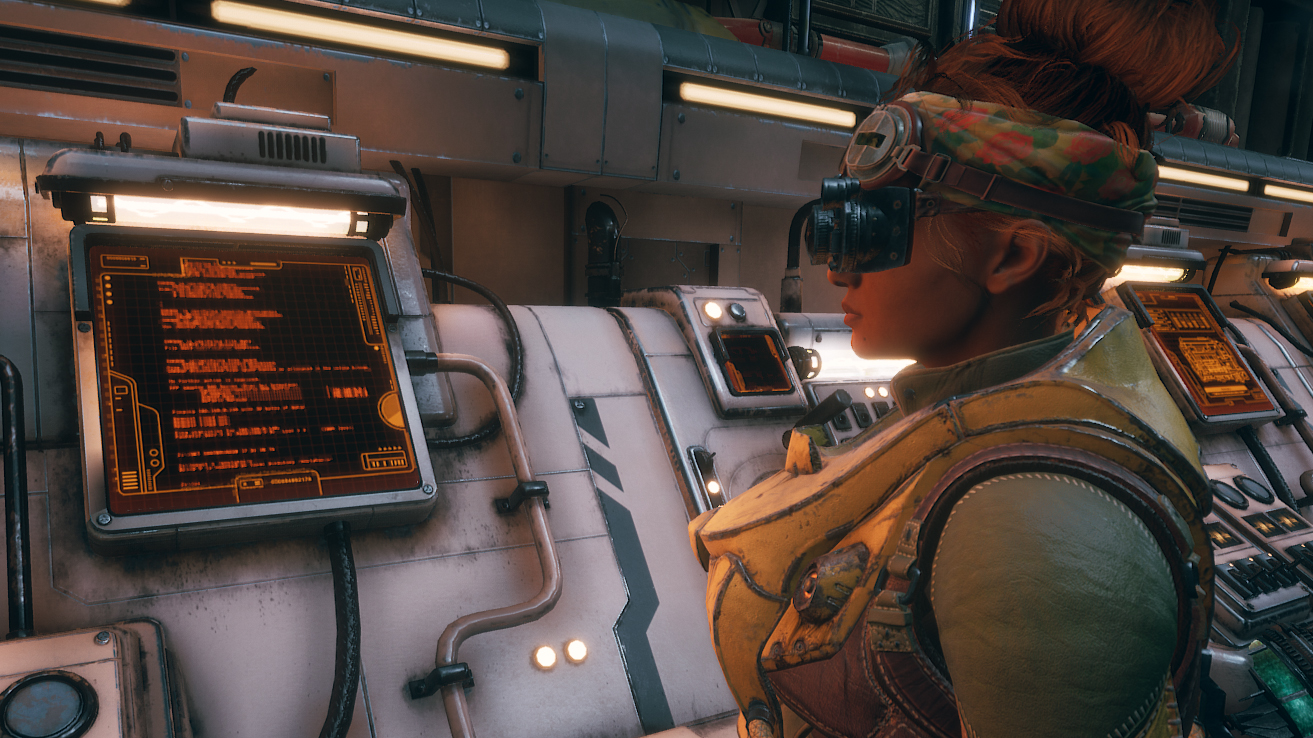
It's hard to go back from that to "[Persuade] Please let me have more money for the quest I did" straight away. OK, so The Outer Worlds is better written than that, but the function of skill checks in dialogue is largely to get out of fights or get extra cash, and often your choices will have no bearing on conversations at all. Any insight you get will probably be freely offered moments later. Conversations, then, feel like they're on rails, and while you can pretend that your character has a personality and certain traits, it's rare that the game will acknowledge that beyond some throwaway dialogue options. It's like nobody is listening to me—my worst fear, aside from spiders.
The illusion of choice in The Outer Worlds is generally thin. There are several ways to complete most missions, but beyond a reputation system that you can largely ignore, your decisions spark very little reaction or comment. Regardless of the choices made, all our experiences of The Outer Worlds are going to be pretty similar. That does mean there's not much reason to burn through even more hours replaying it, but I wish it mattered more how I built my character or how I acted.
In contrast, Disco Elysium immediately speeds off in loads of different story and ideological directions, letting you tug at strings as varied as the tenets of communism to the crime that it's your job to solve. Along the way, you'll build your detective from snatched memories and stray thoughts that you've internalised, transforming into an apocalyptic prophet or maybe a chemically-enhanced superman. Even seemingly incidental conversations with unimportant NPCs can teach you about yourself, and inform your development as a communist cop or super cop or really whatever kind of cop you fancy being.
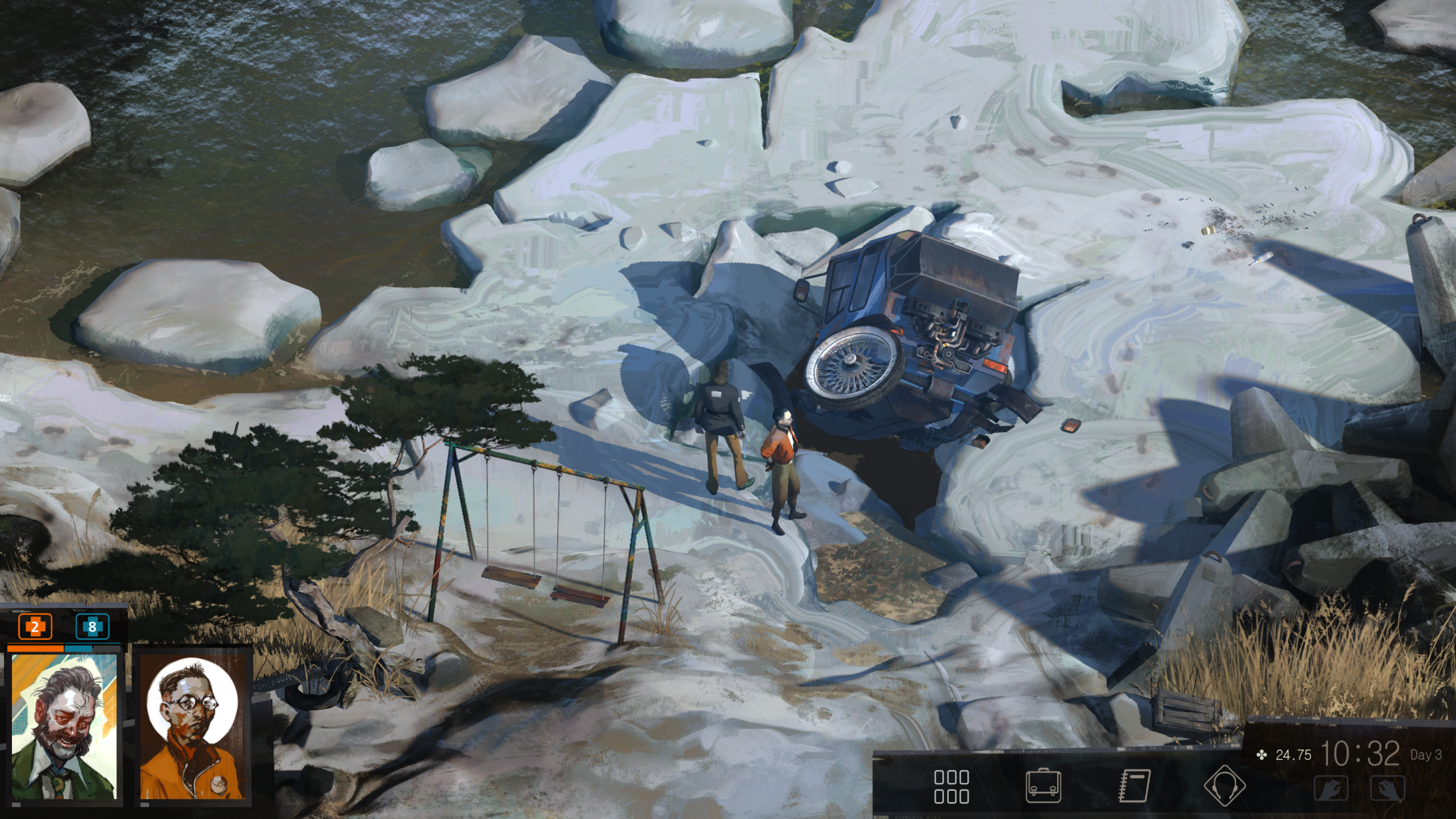
Communism ended up becoming my detective's defining feature in the end, that and booze, but it all started organically when I started picking some slightly socialist dialogue choices, and then it began to seep into every conversation. This can happen with everything from political ideologies to finger guns. The game notices what you do and then adjusts, if you want it to. The dumbest stuff can be fixated on, but no other RPG offers up this much freedom when it comes to defining a character's identity.
RPGs aren't in some tragic state where they need to be rescued by a standard-setting new game—we're not in RTS territory—and there are exciting projects on the horizon, but Disco Elysium has fired me up for a change. A lot of RPG mainstays have become crutches, or even a hinderance. Why does an RPG need crafting? Or even combat? Disco Elysium has neither, and thus every moment is spent talking, investigating and roleplaying. There's still action and violence and pointing guns at people, it's just that it's all in service to the story. Shooting your gun is a big deal and the single proper fight I got into had horrific consequences. The action in Disco Elysium will stick with me more because it was used sparingly and given appropriate weight.
That's one of the reasons I'm keeping my eye on Gamedec, the investigative cyberpunk RPG. You'll hack and sleuth your way through cyber crimes, and while you'll be able to shoot people and hack turrets, there isn't a dedicated combat system. Like Disco Elysium, you'll find your solutions through dialogue and creative use of skills rather than fighting. I'm hoping we're starting to see a trend of RPGs that don't just offer peaceful paths, but skip combat entirely.
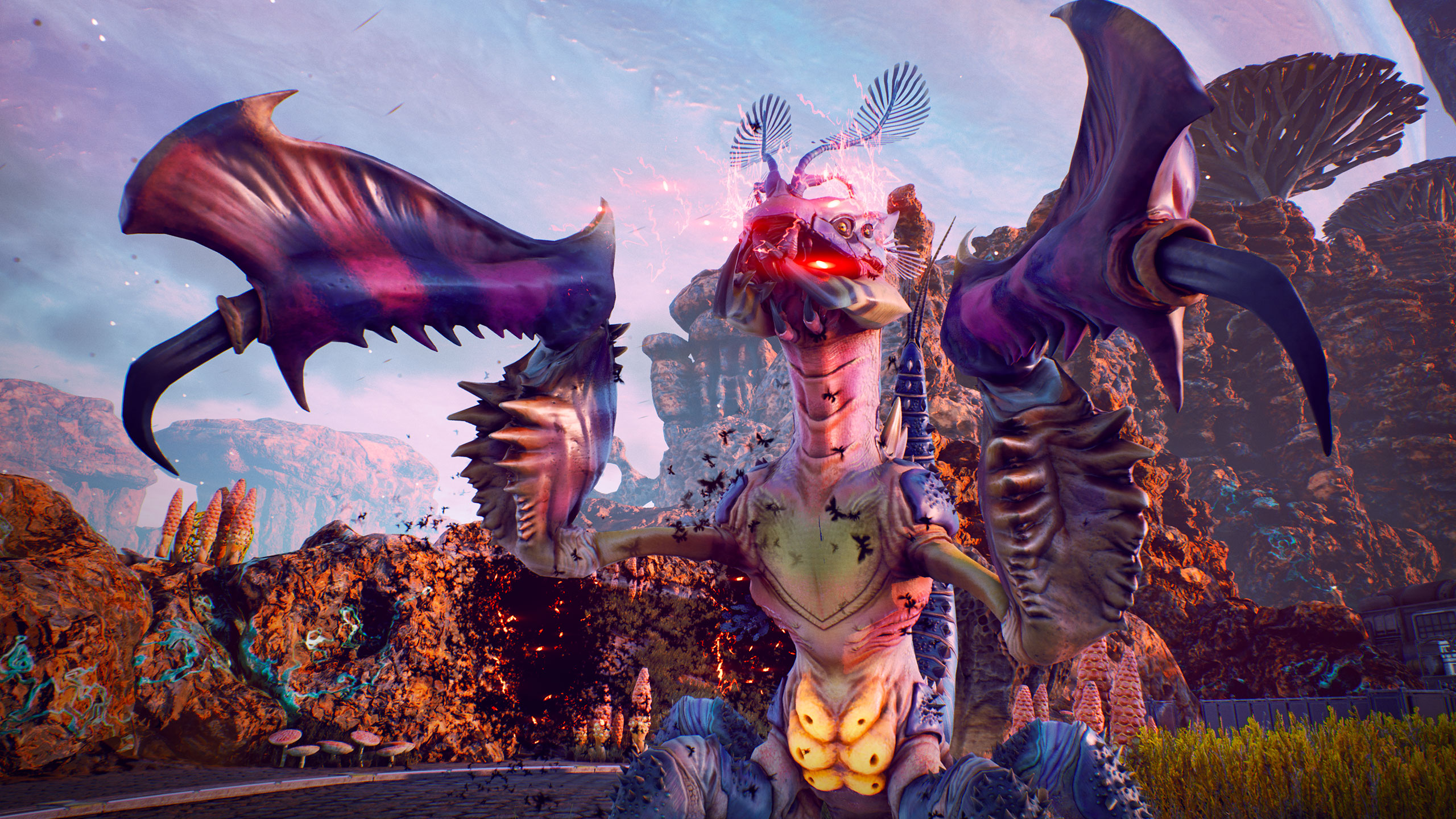
Would I be getting on with The Outer Worlds more if I'd played it first? I think so. It's Obsidian's most conservative RPG, but most RPGs look a little bit staid when they're standing next to ZA/UM's bizarre experiment. I've been spoiled by so many surprises, and now the whiff of convention makes me roll my eyes.
I'm still working away at The Outer Worlds, though. I make it sound like a chore, but really I'm enjoying myself most of the time. Breezy is a word I've heard flung around a lot, and it's the perfect adjective. I can just go around shooting bandits and pretending to be Malcolm Reynolds, but with a handsome moustache. But my mind continues to wander. What about the plight of the worker? What about the mysterious locked door in the hostel? I've finished Disco Elysium, but there are still dangling threads and a communist utopia never completed. I suppose I'll have to play it again.

Fraser is the UK online editor and has actually met The Internet in person. With over a decade of experience, he's been around the block a few times, serving as a freelancer, news editor and prolific reviewer. Strategy games have been a 30-year-long obsession, from tiny RTSs to sprawling political sims, and he never turns down the chance to rave about Total War or Crusader Kings. He's also been known to set up shop in the latest MMO and likes to wind down with an endlessly deep, systemic RPG. These days, when he's not editing, he can usually be found writing features that are 1,000 words too long or talking about his dog.

